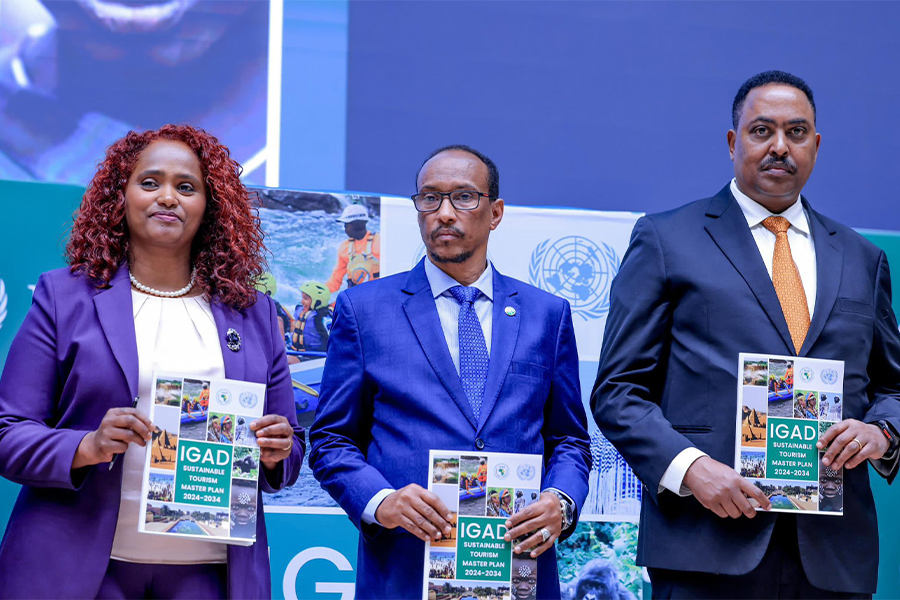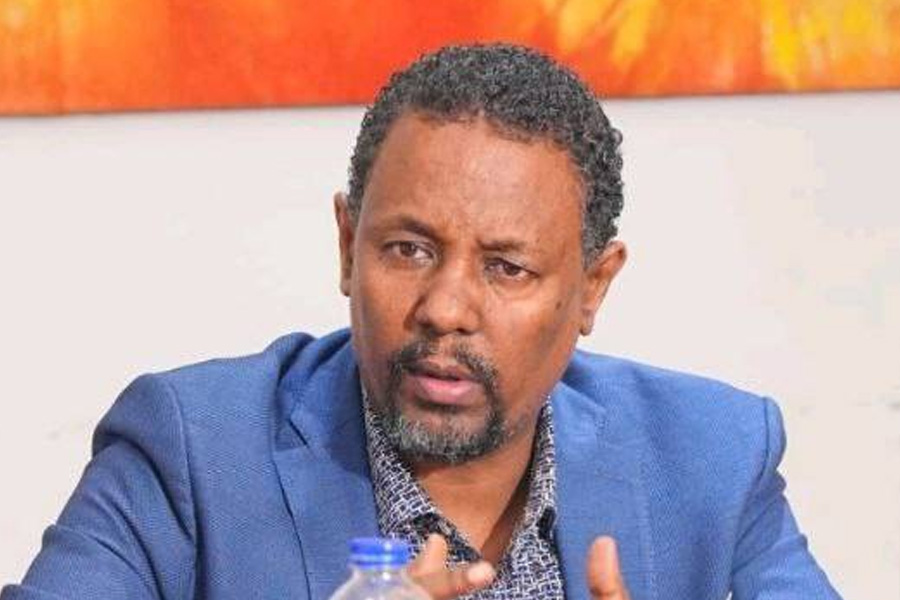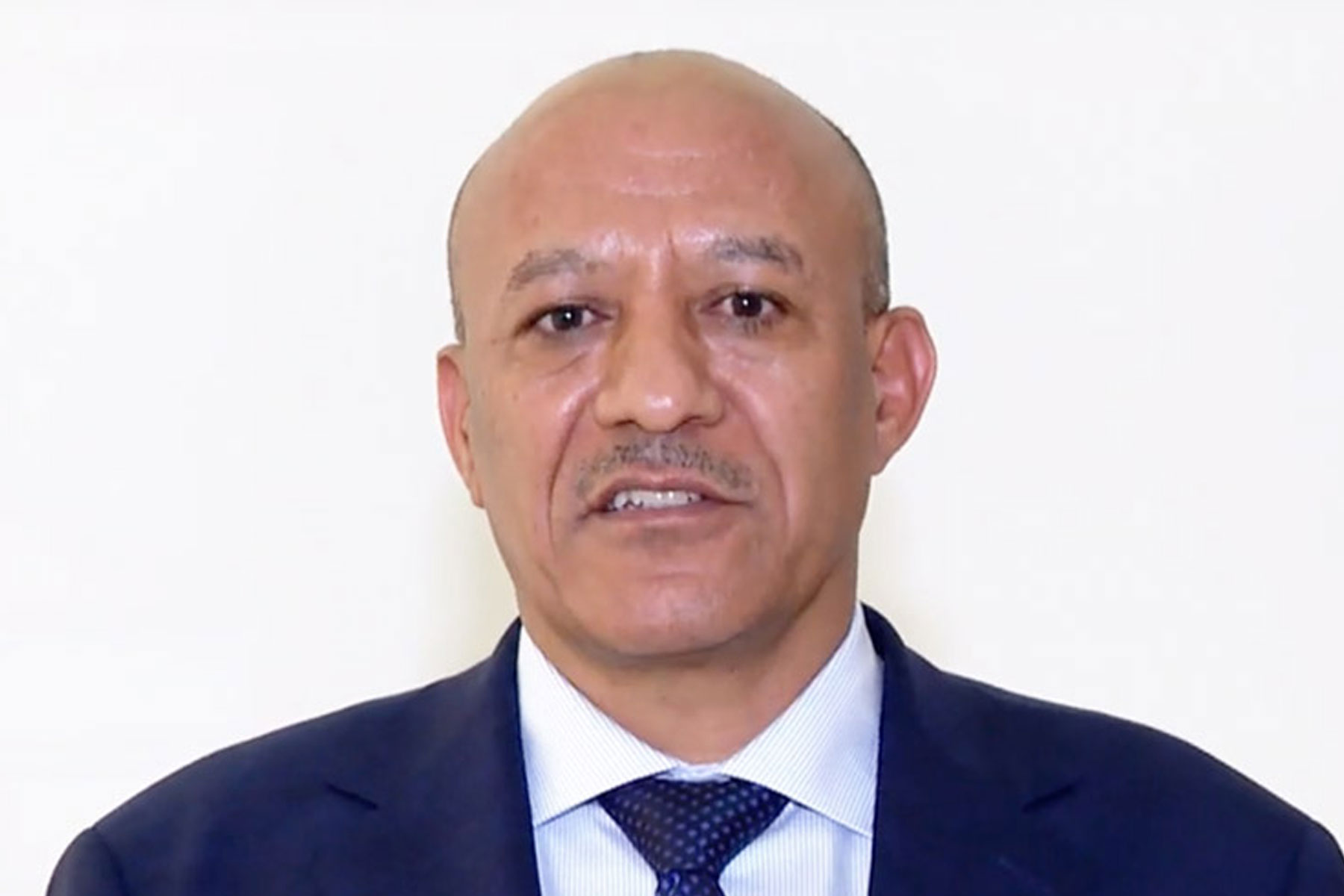
Viewpoints | Sep 18,2021
Apr 17 , 2020
By Mengistu Woube (PhD)
If the upper and lower riparian countries of the Nile Basin want to live in healthy physical and human environments, increase life-supporting systems, and have political stability, developing and upholding environmental laws is crucial, writes Mengistu Woube (PhD) (biofoodp@gmail.com), an associate professor of agriculture and environmental studies who has published several books and articles on land-water resource management problems facing the Abay and Baro-Acobo River basins.
Transboundary river basin water, such as the Blue Nile, aka Abay, has often been the source of international conflict and war.
In recent years, however, transboundary water resources have become sources of regional cooperation and mutual resource sharing rather than costly confrontation.
Water utilisation based on mutual agreement and cooperation include agreements between Lesotho and South Africa as well as between China, Myanmar, Laos, Thailand, Cambodia and Vietnam. Although shared water resources, in combination with water scarcity, leads to political conflicts, these conflicts tend to result in the parties taking stock and finding ways of cooperating on this common resource.
International institutions such as the African Union, IGAD, the European Union and the Arab League all have an obligation to stimulate the ideas of cooperation. This is with the view that transboundary water should become an important factor for bringing regional peace and stability, food and nutrition security, and environmental sustainability. That means countries located along the Abay (Blue Nile) River Basin should mutually cooperate by sharing the benefits that may be derived from the use of water-led resources such as effective energy exploration, efficient farming and transport, as well as the tourism industry.
Similarly, they should be obliged to help one another in sustaining food crop production where it is climatically most advantageous and then simplify produce trade. Such cooperation leads to an added value or a plus-sum game, where all parties can have a win-win situation instead of opting for a zero-sum game where one’s triumph becomes the other's loss.
But genuine cooperation should not be limited only to sharing the benefits. It should also express itself in sharing the costs incurred. For instance, if water scarcity and resource-use conflict, as well as political confrontation, are to be eliminated or avoided, then sharing costs incurred in alleviating the degraded environment is the most fundamental factor to prioritise for the future.
Even though cooperation is considered essential, it cannot wholly ameliorate transboundary water scarcity. Transboundary water scarcity can be alleviated through mutually governed and sustainable land utilisation and water resources management strategies. This requires understanding, trust and confidence among the upper and lower riparian countries.
Through mutually agreed upon and sustainable water resource use through genuine cooperation and determination to rehabilitate the deteriorated environment, river basins such as the Nile and Baro-Akobo in the region can provide sufficient and adequate water and soil nutrients as well as food and nutrition security for the riparian countries.
At the moment, the demand for water use in the Nile Basin is increasing exponentially, while we have yet to fully understand the impacts exerted by physical and human environments on obtaining and maintaining water sources. Neither the international laws and regulations nor the upper and the lower riparian states have established a real understanding of the interplay between water sources and the environment within which they function. There is a crucial need to realise how water resources can either be utilised through conservation-based natural resources development or be misused through depletion. These phenomena can be exposed to multiple scenarios.
Consider the first. In recent years, the Grand Ethiopian Renaissance Dam (GERD) has been a point of disagreement between Egypt on one side and Ethiopia and Sudan on the other. As an upper riparian state, Ethiopia could demand a heavy tax or export duty on the freshwater flowing from the Abay Basin and the immense volume of fine silts, which are transported from its territory to the lower riparian countries. It could also demand some form of compensation because of delays caused by Egypt on the ongoing construction and operation activities of the GERD. The three countries, however, have not yet reached an agreement on the process of filling and operating it despite years of negotiation.
These tensions between the three states are not new. The Nile has been a cause of antagonism between Ethiopia and Egypt for centuries. The Abay Basin, which flows from the Ethiopian highlands, contributes to more than eighty percent of the annual flow of the Nile. The remaining water comes from the White Nile, which flows from Lake Victoria, and Atbara (Tekeze), which also flows from Ethiopia.
The rich sedimentation that is carried by the seasonal flow of the Abay Basin has been the mainstay of Egyptian agriculture for millennia. And starting from the times of the pharaohs, the Egyptians have been wary of an upstream dam that would strangle the flow of the Nile.
This is another scenario. The GERD, which is huge enough to contain the main volume of water, most sediment loads will be deposited in the reservoirs. As a result, adequate and sufficient fine silts and fresh water will be supplied on a regular basis to the lower riparian countries. Since a productive ecosystem and essential environmental security are going to be created through the ongoing GERD construction by way of an artificial lake, all countries within the Abay Basin will benefit.
However, key prerequisites for its success include peace in the region, cooperation, hydrology, hydrogeology, climate change, socioeconomic conditions and financial input and moral support from the international communities.
There is yet another scenario to consider. If present levels of environmental degradation continue, this could lead the overall regional environment, both in the upper and lower riparian countries, to experience severe land degradation, drought, unexpected destructive floods and low agricultural productivity. All of these negative activities lead to mass migration, food insecurity or even famine, socio-political instability and human and animal mortality.
A fourth scenario considers the realisation that the GERD can lead to both short and long-term sustainable water resource utilisation measures. If the upper and lower riparian countries are united and cooperative in the realisation of the GERD programme, then this opportunity can alleviate any environmental threat, bring both water and fine silt sufficiency and result in sustained food security in the region.
The three countries must share the burden of managing the GERD and determine to rehabilitate the Abay Basin consistently through conservation-based sustainable natural resource management policies. Such an understanding may lead to efficient use of water and energy and increase the agricultural output for both the upper and lower riparian countries.
Under this scenario, the GERD, when completed, provides an artificial and beautiful lake scene, which is essential to run the water cycle; reduce flood effects and sediment loads; and prevent landslides, soil erosion, desertification and drought. It will also be critical to assuring a high-quality water supply and fine silts for farming purposes; providing for a productive ecosystem; and creating a clean and renewable energy and natural cooling system, all of which have the ability to ameliorate climate change problems.
The GERD can also be used as a research centre; it can supply different fish species that can be raised in the regulated reservoir; people can use it for swimming and other recreational activities; and it can contribute nutrition and environmental security, which are indispensable to the upper and lower riparian countries.
All water has an environmental and ecosystem function and plays a crucial productive role. The availability of water and water crises are not associated with the physical availability of water, but rather poor environmental governance (deep-rooted power relations), extreme poverty and related inequalities.
To improve the livelihoods of the present and later generations in the three countries, we need to look at water as interconnected to many other issues. It involves supply, quality allocation, distribution and equity with respect to food and environmental security not by hostile acts against Ethiopia to stop it (which is impossible) but from building environmentally friendly dams.
If the upper and lower riparian states continue to argue over the outdated “water rights” designed by the colonialists, more environmental deterioration is imminent. We should instead follow natural, societal and religious laws and use available water sustainably based on the ratification of the Nile Basin Cooperative Framework to end the legacy of past hydrology-hegemonic aspirations.
If the upper and lower riparian countries want to live in healthy physical and human environments, increase life-supporting systems or maintain healthy ecosystem function and have political stability, developing and upholding environmental laws is crucial.
PUBLISHED ON
Apr 17,2020 [ VOL
21 , NO
1042]

Mengistu Woube (PhD) (biofoodp@gmail.com), associate professor of agriculture and environmental studies. He has published several books and articles on land-water resource management problems facing the Abay and Baro-Acobo River basins.

Viewpoints | Sep 18,2021

Radar | Sep 22,2024

Commentaries | Jun 13,2020

Viewpoints | Jul 02,2022

Commentaries | May 15,2021

Radar | Dec 15,2024

Radar | Apr 15,2024

Viewpoints | Nov 02,2024

Commentaries | Dec 24,2022

Viewpoints | Sep 01,2024

My Opinion | 131507 Views | Aug 14,2021

My Opinion | 127863 Views | Aug 21,2021

My Opinion | 125841 Views | Sep 10,2021

My Opinion | 123471 Views | Aug 07,2021

Dec 22 , 2024 . By TIZITA SHEWAFERAW
Charged with transforming colossal state-owned enterprises into modern and competitiv...

Aug 18 , 2024 . By AKSAH ITALO
Although predictable Yonas Zerihun's job in the ride-hailing service is not immune to...

Jul 28 , 2024 . By TIZITA SHEWAFERAW
Unhabitual, perhaps too many, Samuel Gebreyohannes, 38, used to occasionally enjoy a couple of beers at breakfast. However, he recently swit...

Jul 13 , 2024 . By AKSAH ITALO
Investors who rely on tractors, trucks, and field vehicles for commuting, transporting commodities, and f...

Jun 28 , 2025
Meseret Damtie, the assertive auditor general, has never been shy about naming names...

Jun 21 , 2025
A well-worn adage says, “Budget is not destiny, but it is direction.” Examining t...

Jun 14 , 2025
Yet again, the Horn of Africa is bracing for trouble. A region already frayed by wars...

Jun 7 , 2025
Few promises shine brighter in Addis Abeba than the pledge of a roof for every family...

Jun 29 , 2025
Addis Abeba's first rains have coincided with a sweeping rise in private school tuition, prompting the city's education...

Jun 29 , 2025 . By BEZAWIT HULUAGER
Central Bank Governor Mamo Mihretu claimed a bold reconfiguration of monetary policy...

Jun 29 , 2025 . By BEZAWIT HULUAGER
The federal government is betting on a sweeping overhaul of the driver licensing regi...

Jun 29 , 2025 . By NAHOM AYELE
Gadaa Bank has listed 1.2 million shares on the Ethiopian Securities Exchange (ESX),...